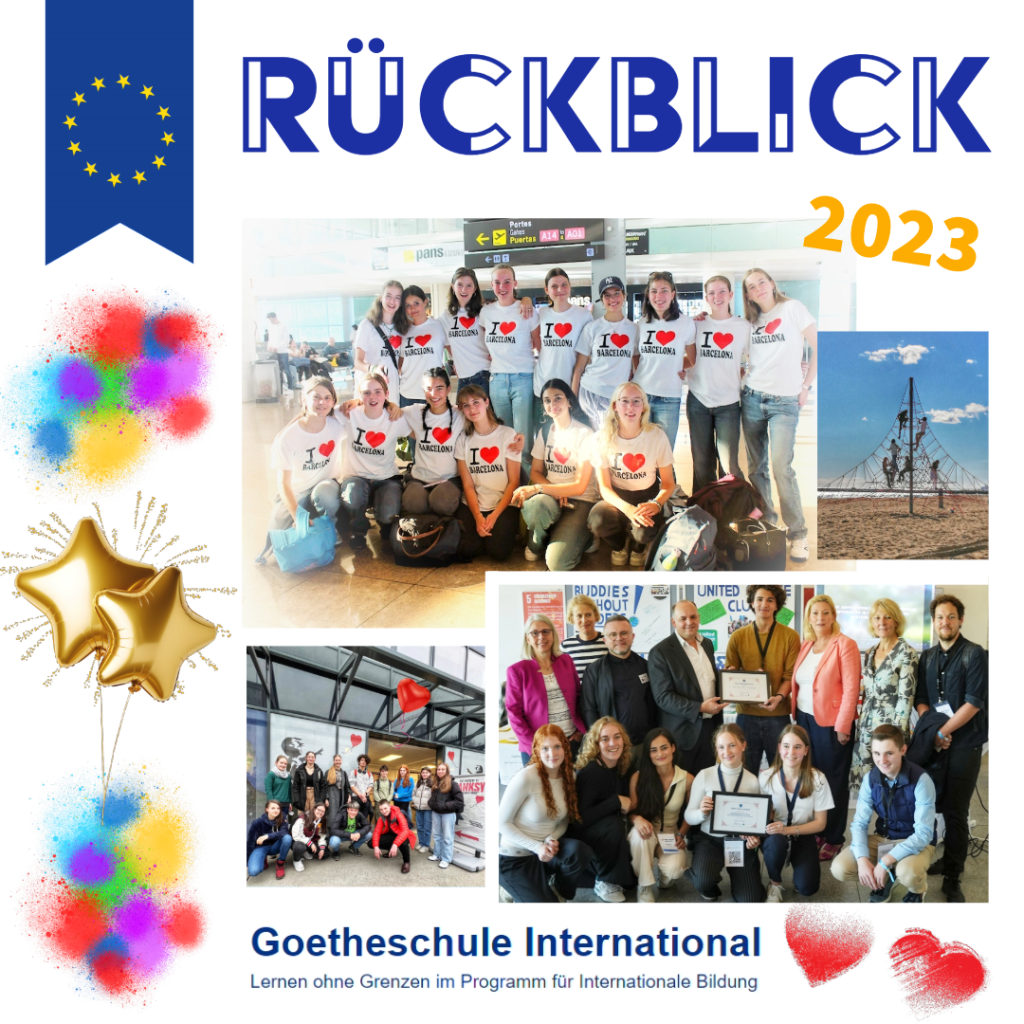 Wir sagen DANKE an alle, die unsere internationalen Aktivitäten im Jahr 2023 unterstützt haben. Es war ein Jahr voller spannender Begegnungen und kreativer Projekte.
Wir sagen DANKE an alle, die unsere internationalen Aktivitäten im Jahr 2023 unterstützt haben. Es war ein Jahr voller spannender Begegnungen und kreativer Projekte.
DANKE, …
an die Kuratoren der Banksy-Ausstellung in Mülheim für die Diskussionsanregungen in unseren englischen Vertiefungs- und Philosophiekursen in Jgst. 10 und 11;
an die Amnesty International-Gruppe Essen-Süd für einen englischen Workshop über Menschenrechtsverletzungen in der Jgst. 9;
an unsere Partnerschule in Lublin, Polen, für eine Erasmuswoche über „Different Forms of Learning“ in Jgst. 10;
an ‚Bücher Bredeney‘ für das Sponsoring der Book Challenge unserer Schülerinnen und Schüler in Jgst. 5 bis 12, die Bücher und digitale Medien verbunden hat;
an unsere holländischen Gastgeber vom Gymnasium Haganum bei der Model UN in Den Haag für Schülerinnen und Schüler der Jgst. 10 bis 12;
an Jon Woodall, den Leiter von Amazon Education, für seinen Career Talk mit unseren Schülerinnen und Schülern der Klassen 9 bis 12;
an das Junge Literaturhaus Köln, das unsere Essener Erasmuswoche zu „Deep Reading in Digital Times“ bereichert hat;
an unsere Technik-AG, die unseren Erasmus-Schülerinnen und -Schülern in Jgst. 10 und 11 geholfen hat, eine englische Version von Robert Seethalers „Der Trafikant“ auf die Bühne zu bringen;
an unsere Erasmus-Partnerschulen aus Ikast (Dänemark), Lublin (Polen), Barcelona (Spanien) und Šiauliai (Lublin), die mit uns ein Theaterstück über Bildungsromane als Gemeinschaftsprojekt mit Schülerinnen und Schülern aus fünf Ländern entwickelt haben;
an den englischen Diff-Kurs der Jgst. 9, der sich am Schwerpunkt „Deep Reading“ der Essener Erasmuswoche mit der Lektüre und filmischen Umsetzung von Mark Twain’s Huckleberry Finn beteiligte;
an unsere Partnerschule in Barcelona für eine Erasmuswoche zu “Transdigital Perspectives”, die gezeigt hat, wie ganzheitliches Lernen mit digitalen Medien gelingen kann;
an Nils Ole Haar, den Leiter von Europe Direct Essen, der mit uns die Akkreditierung als Erasmusschule gefeiert hat;
für die Auszeichnung als ‚Best Representative‘ im internationalen Frühlings-Nachhaltigkeitsforum ‘The Best ROI – Women and the Economy*;
an alle IB-Lehrerinnen und -Lehrer für 15 Jahre internationale Schulabschlüsse im IB Diploma Programme;
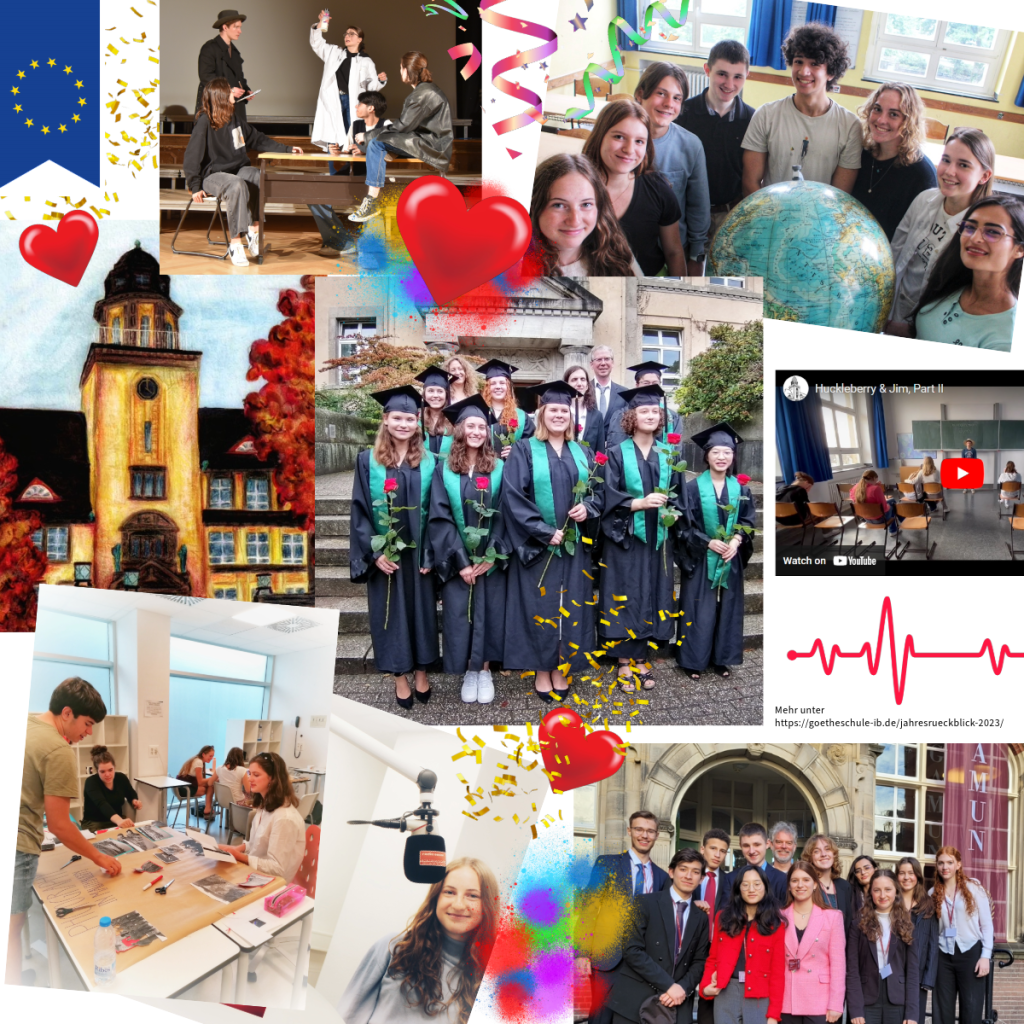
an Global Education Destinations für die Aufnahme unseres internationalen Nachhaltigkeitsclubs „United Change“ in ein Netzwerk aus über 25 Ländern;
für die Auszeichnung als ‚Best Representative‘ im internationalen Sommer-Nachhaltigkeitsforum ‘AquaAlliance’;
an unsere Partnerschule in Tønder (Dänemark) für gemeinsame Essener Erasmus-Tage zum Strukturwandel im Emscher Tal;
an Radio Essen für die Einladung an unsere Schülerinnen und Schüler, über ihre internationale Nachhaltigkeitsarbeit im Interview zu berichten;
an Bürgermeisterin Julia Jacob und Staatssekretär Viktor Haase vom Ministerium für Umwelt, Naturschutz und Verkehr, an Dr. Björn Mastiaux (VHS Essen), Dr. Heike Naderer von der Stiftung Umwelt und Entwicklung NRW, Jonas Greschner, Koordinator für Bildung für nachhaltige Entwicklung beim Landesverband der Volkshochschulen, und Jennifer Kappmeier-Klenk, Koordinatorin von „Schule der Zukunft“, die an unserem Info-Stand beim Essener BNE-Festival (Bildung für nachhaltige Entwicklung) mit unseren Schülerinnen und Schülern über ihren internationalen Nachhaltigkeitsclub gesprochen und sie in ihrem Engagement bestärkt haben;
an unsere Partnerschule in Barcelona und das Museu d’Història de Catalunya für das Geschichtsprojekt „In the Darkroom of History“ und die gemeinsam erarbeitete Ausstellung mit Schülerinnen und Schülern der Jgst. 10;
an Dokumentarfilmer und Regisseur Siegmund Thies, der unseren englischen Diff-Kursen in Jgst. 9 und 10 von seiner Arbeit im südamerikanischen Regenwald und über die Folgen von Raubbau und Klimawandel für die indigene Bevölkerung Ecuadors berichtete sowie an den Verein der Freunde und Förderer, der das Filmgespräch finanzierte;
für den Pioneer Award im internationalen Herbst-Nachhaltigkeitsforum „Green Jobs in the Green Economy“;
an Herrn Dr. Hartig, der auch 2024 wieder unseren englisch-deutschen Lyrikpreis sponsern wird;
an das Institut für Ökologie und Aktions-Ethnologie e.V., das mit unserer Schule Online-Austausche mit dem indigenen Volk der Karen in Thailand vorbereitet.
Danke an alle, die uns geholfen haben, unsere Klassenzimmer zu öffnen, Grenzen zu überwinden und unsere Schülerinnen und Schüler zu ermutigen, dass Neugier, Begeisterung und Engagement den Weg in eine lebenswerte Zukunft weisen!
Karmen Heup & Martina Féaux de Lacroix


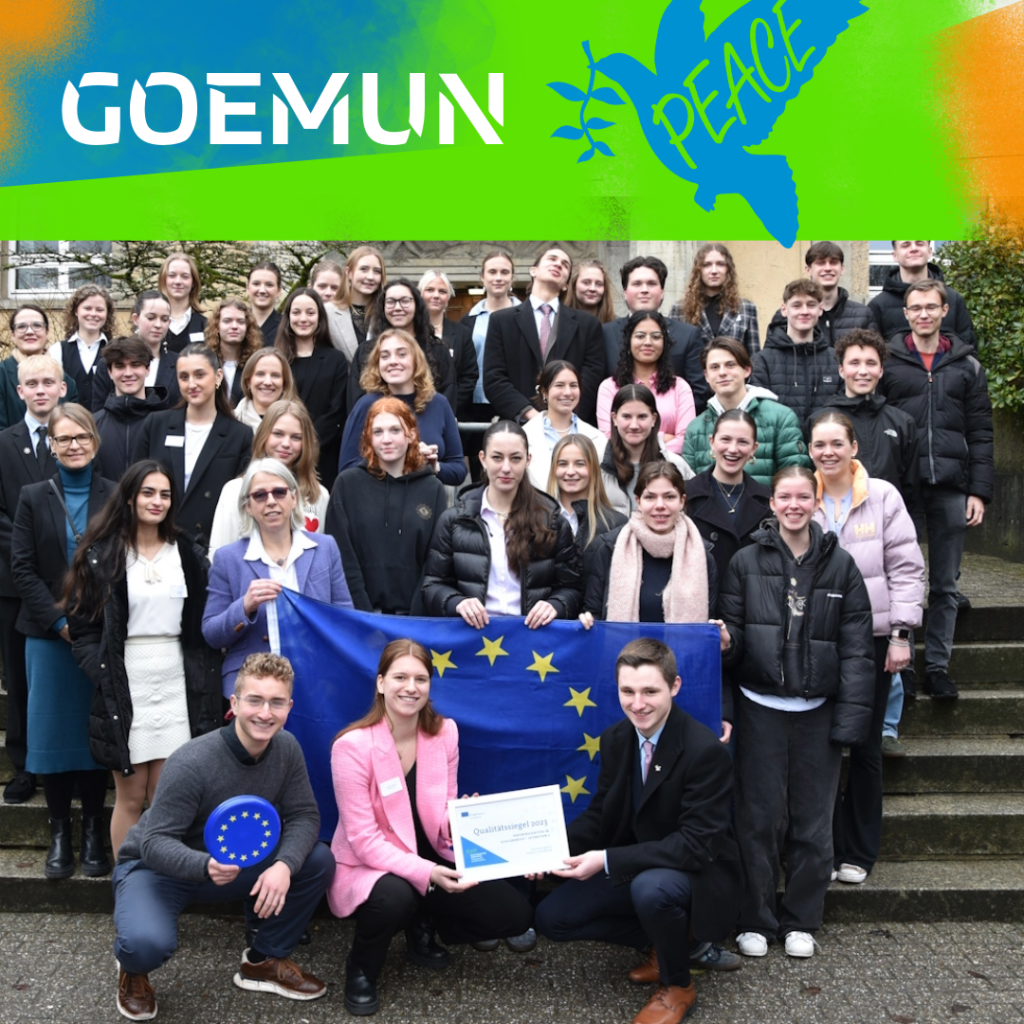 Wie im Flug sind die Tage mit unseren Erasmus-Partnern aus Ikast vergangen. Am Mittwoch, dem 7.2.24, freuten sich beide Partnerschulen über das Quality Label für das Erasmus-Projekt 2020-2023 und feierten den Abschluss einer gemeinsamen Debatte über Frieden und Verständigung.
Wie im Flug sind die Tage mit unseren Erasmus-Partnern aus Ikast vergangen. Am Mittwoch, dem 7.2.24, freuten sich beide Partnerschulen über das Quality Label für das Erasmus-Projekt 2020-2023 und feierten den Abschluss einer gemeinsamen Debatte über Frieden und Verständigung.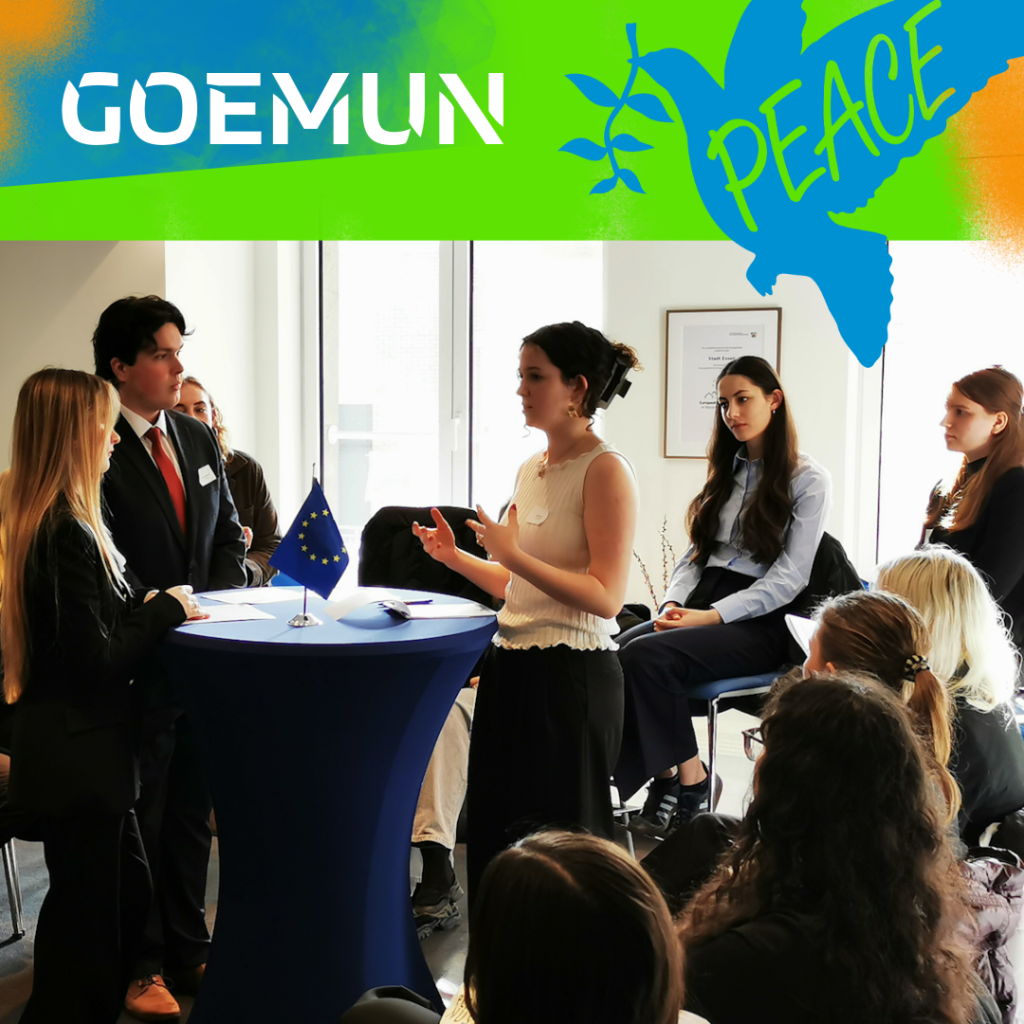
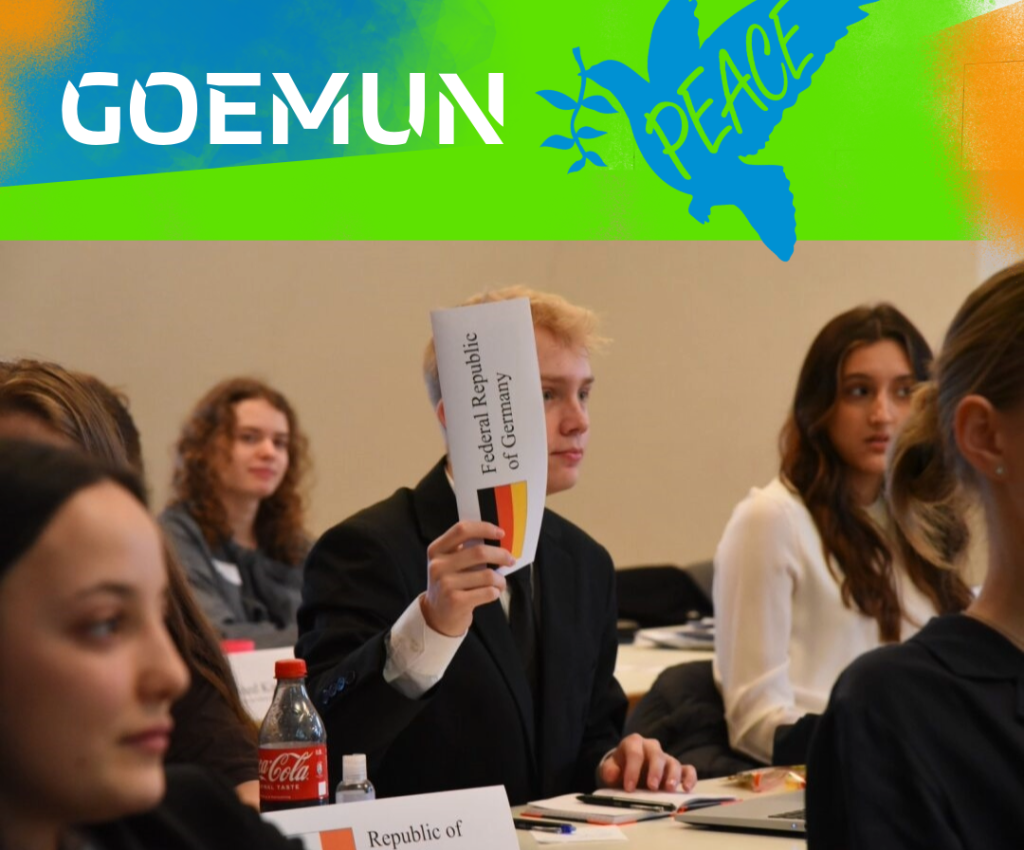
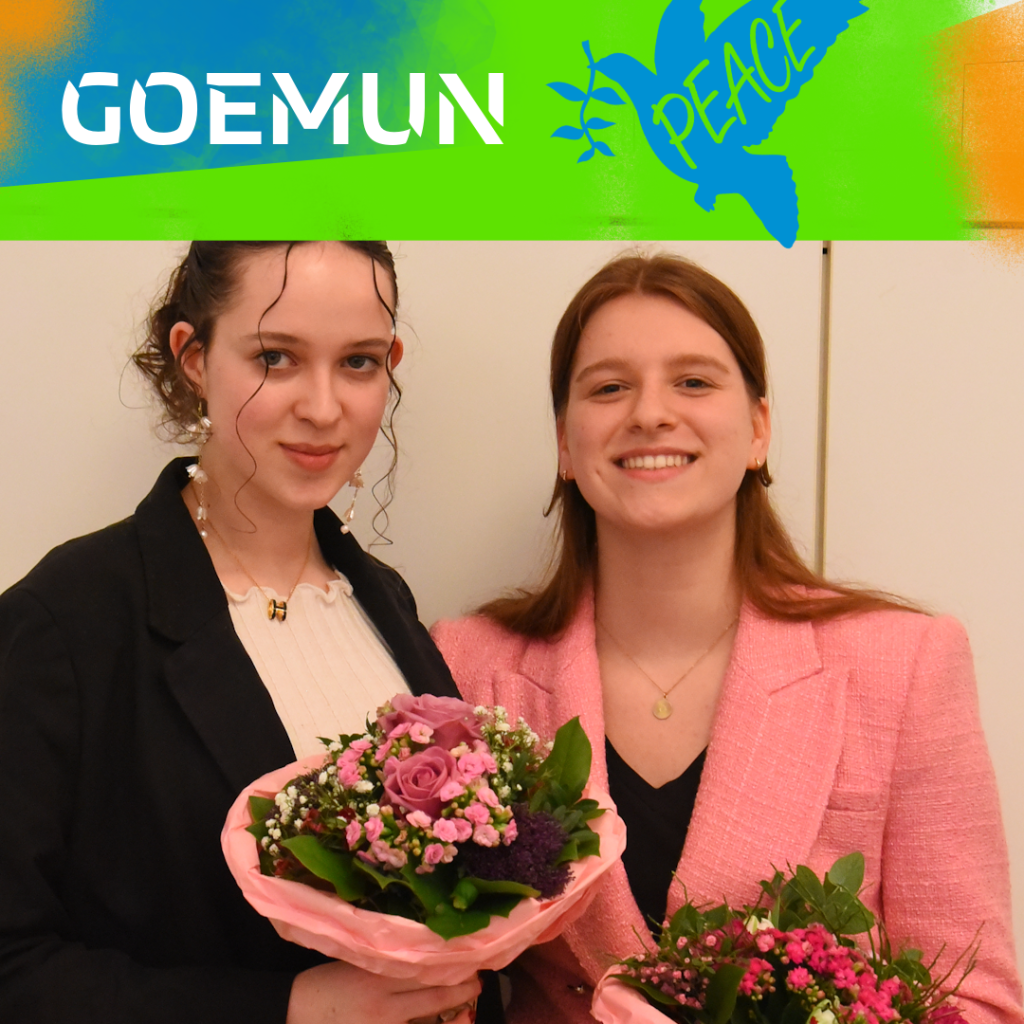
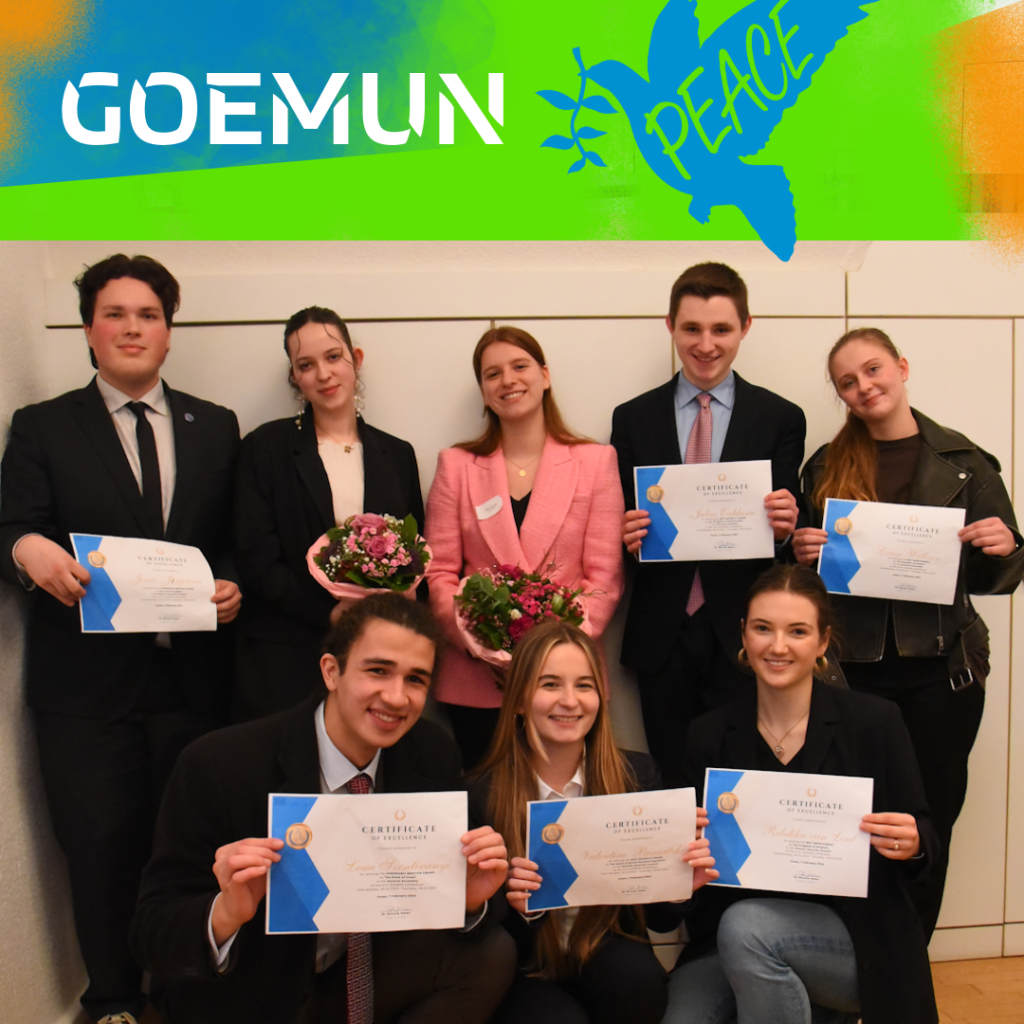



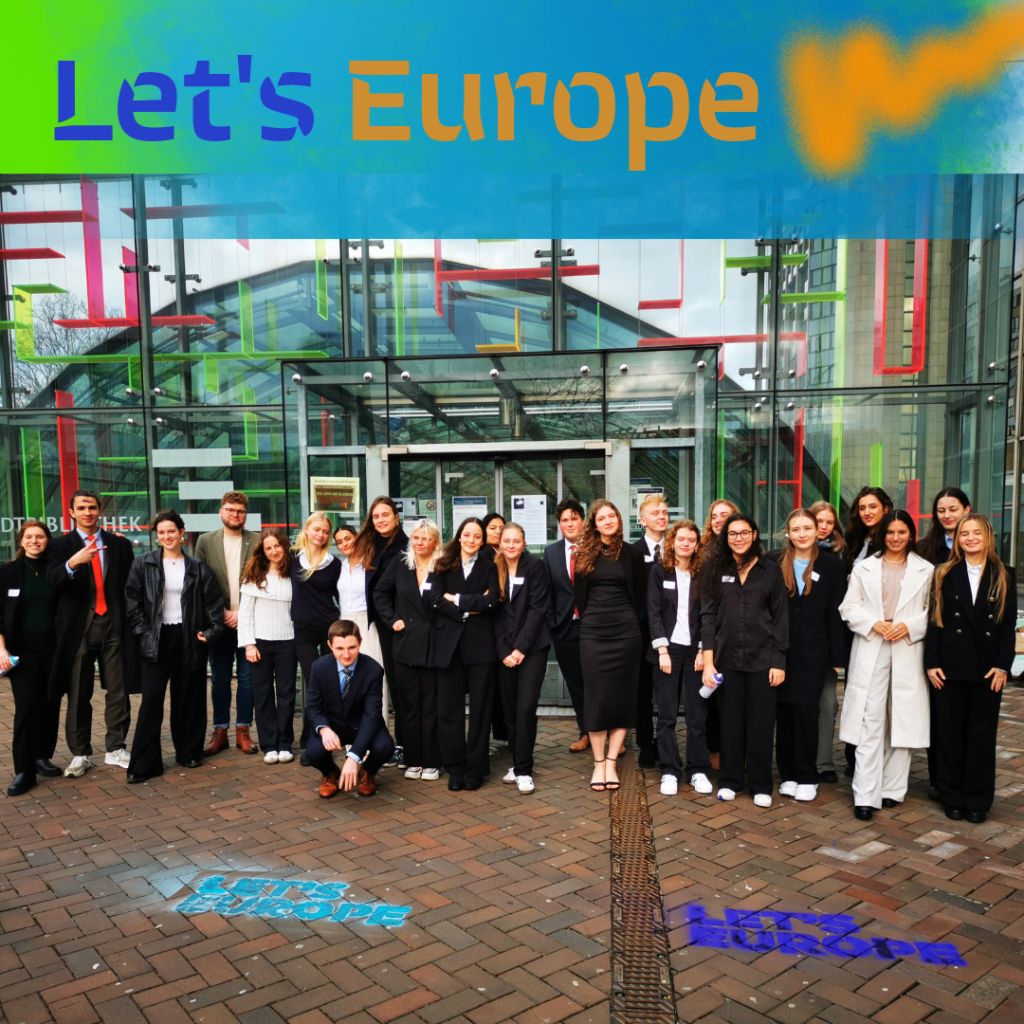
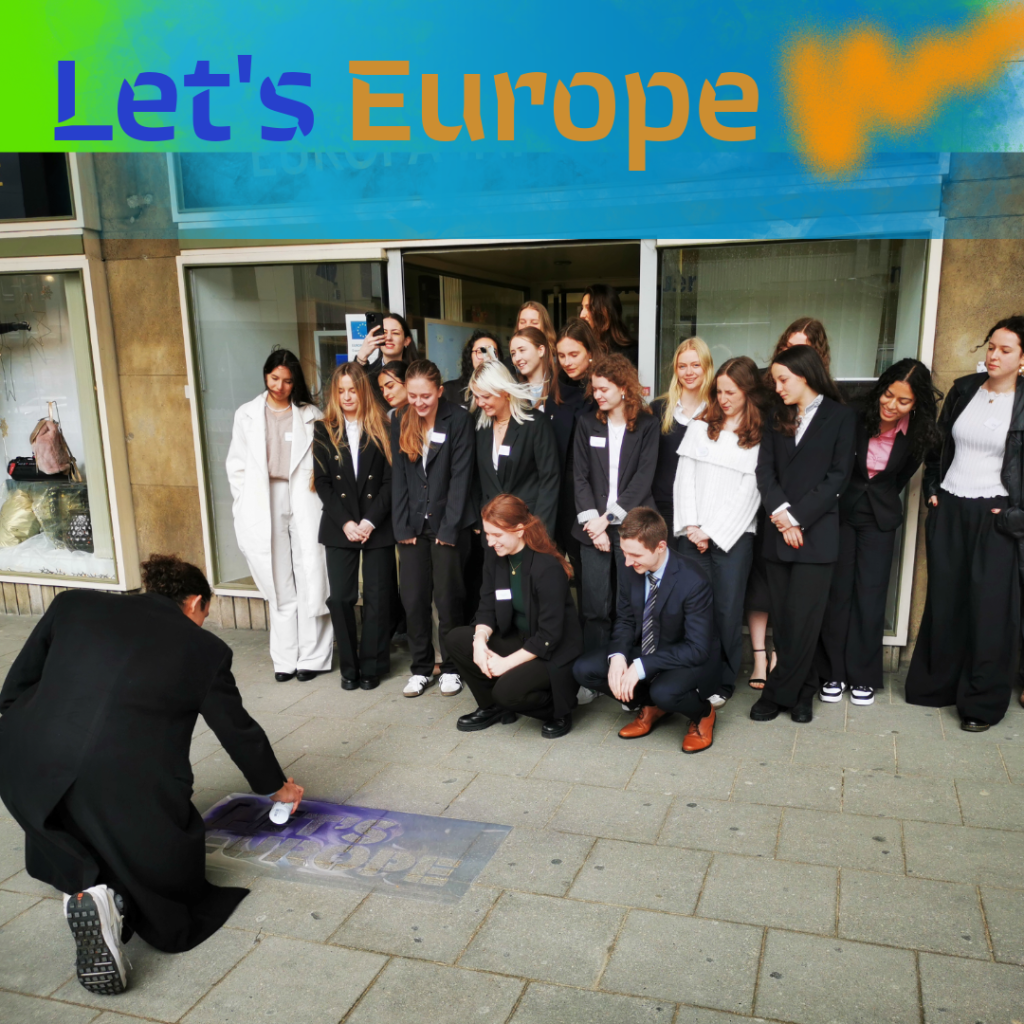
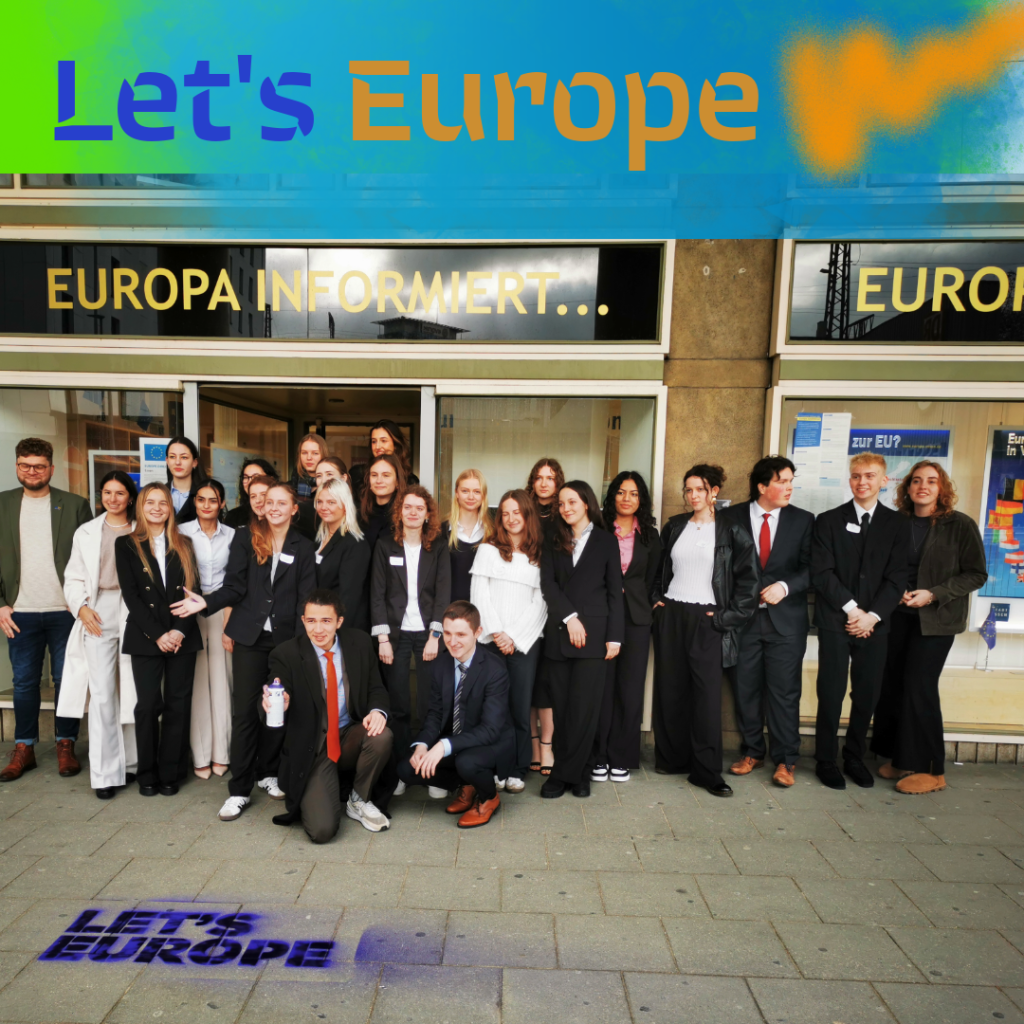
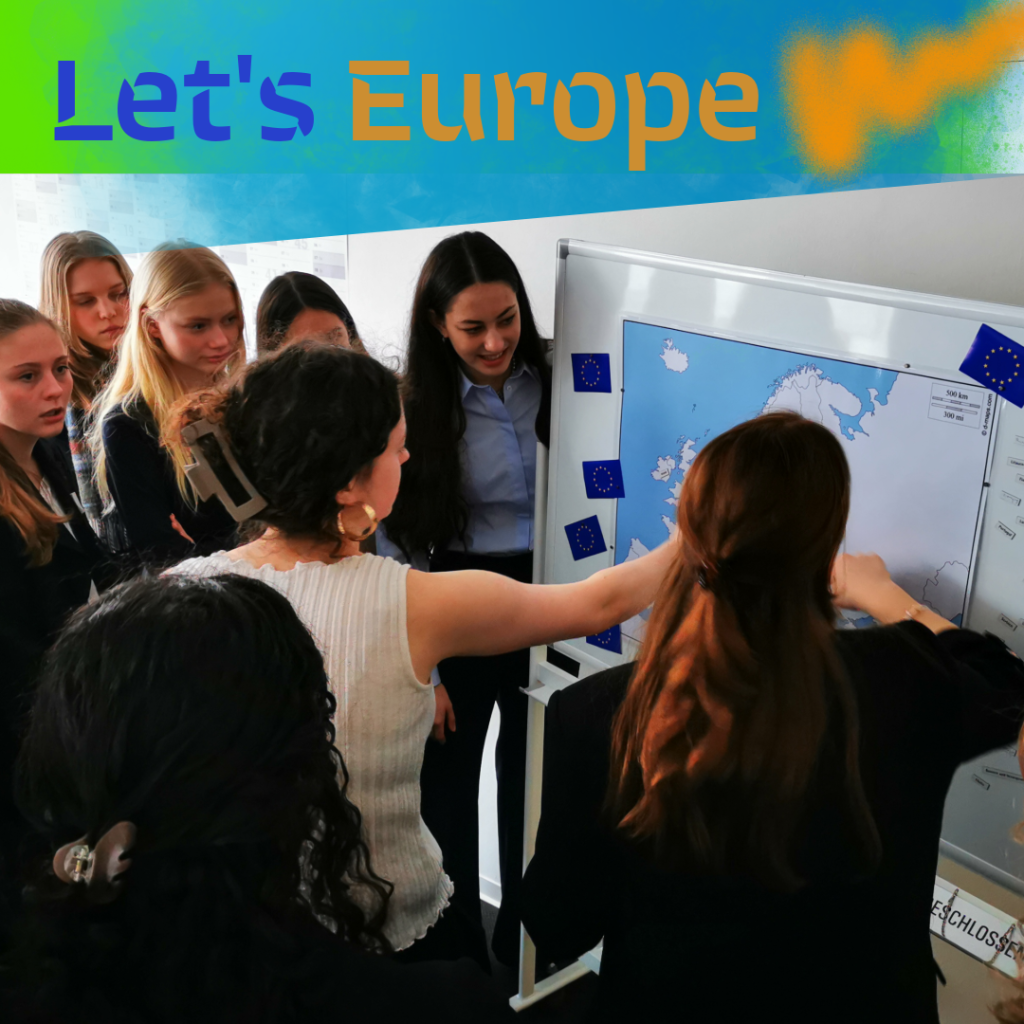
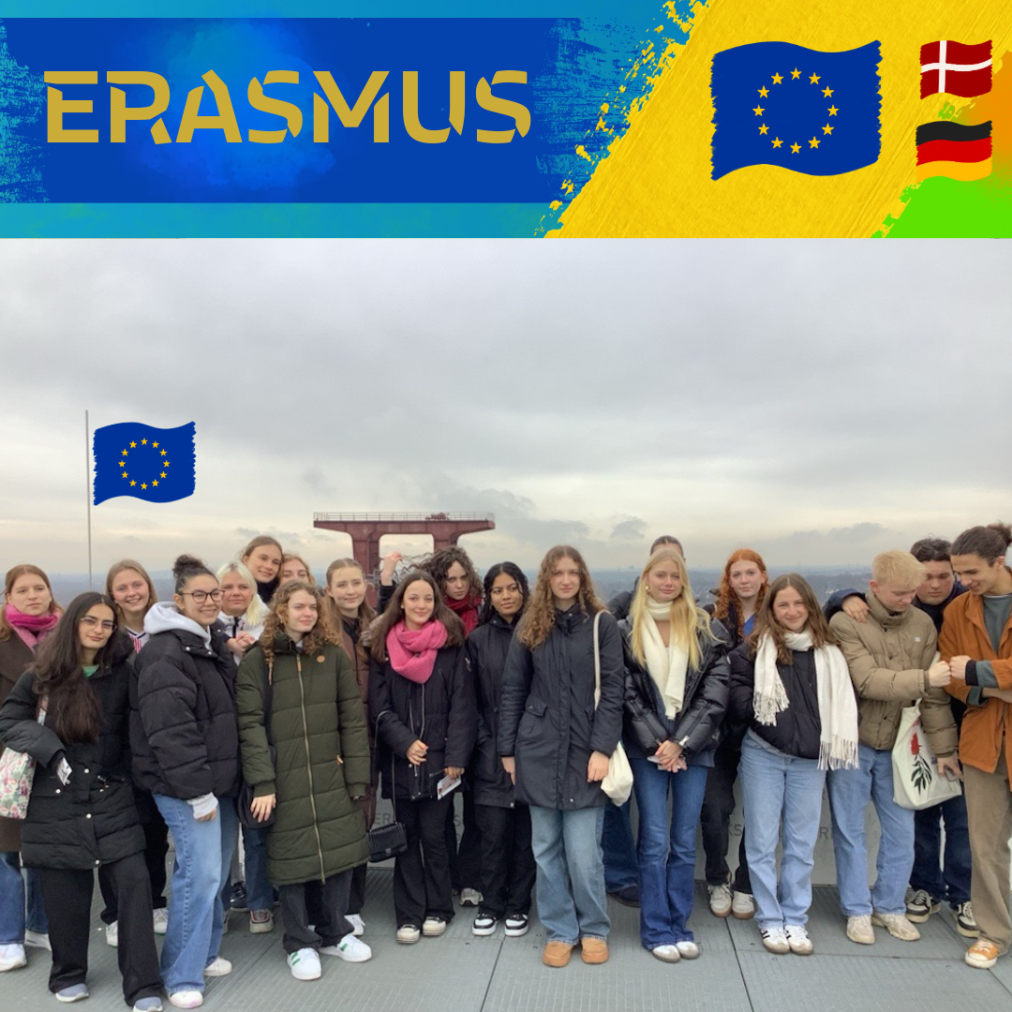
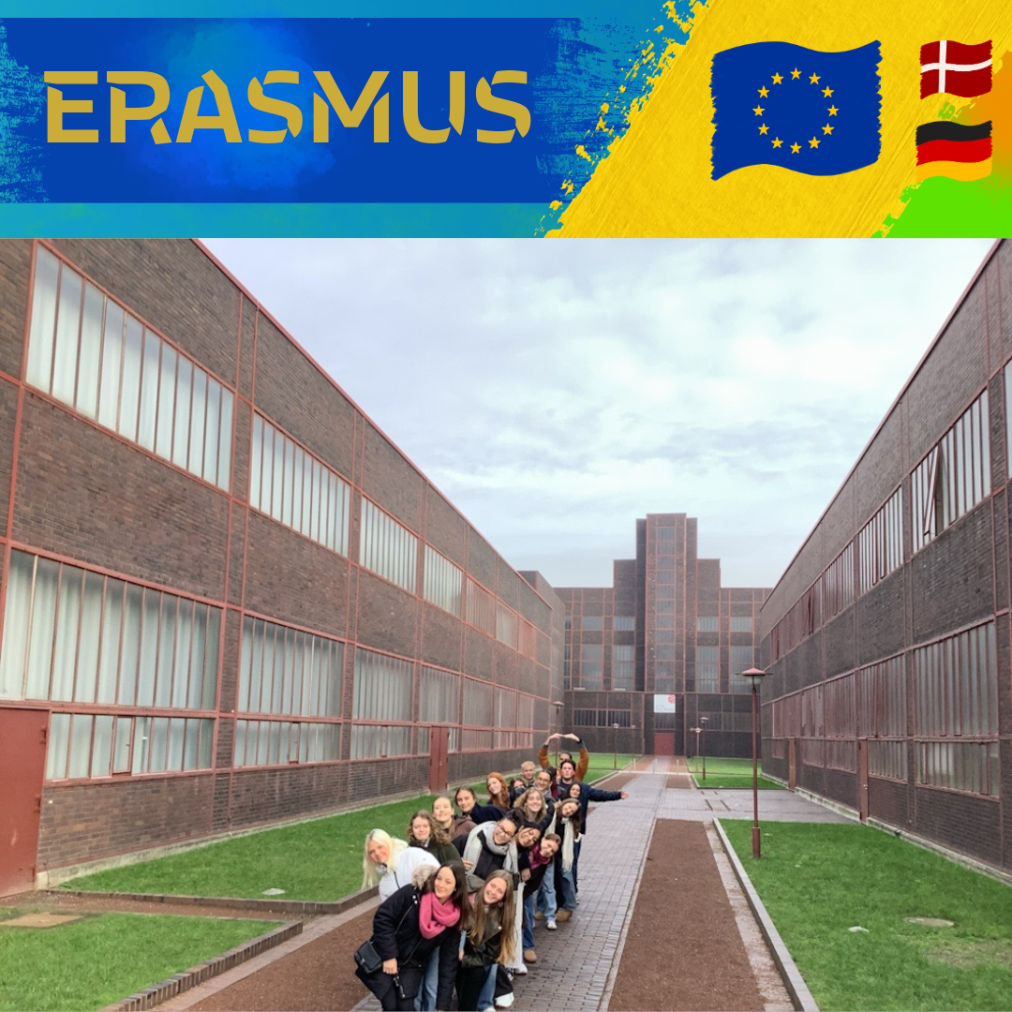
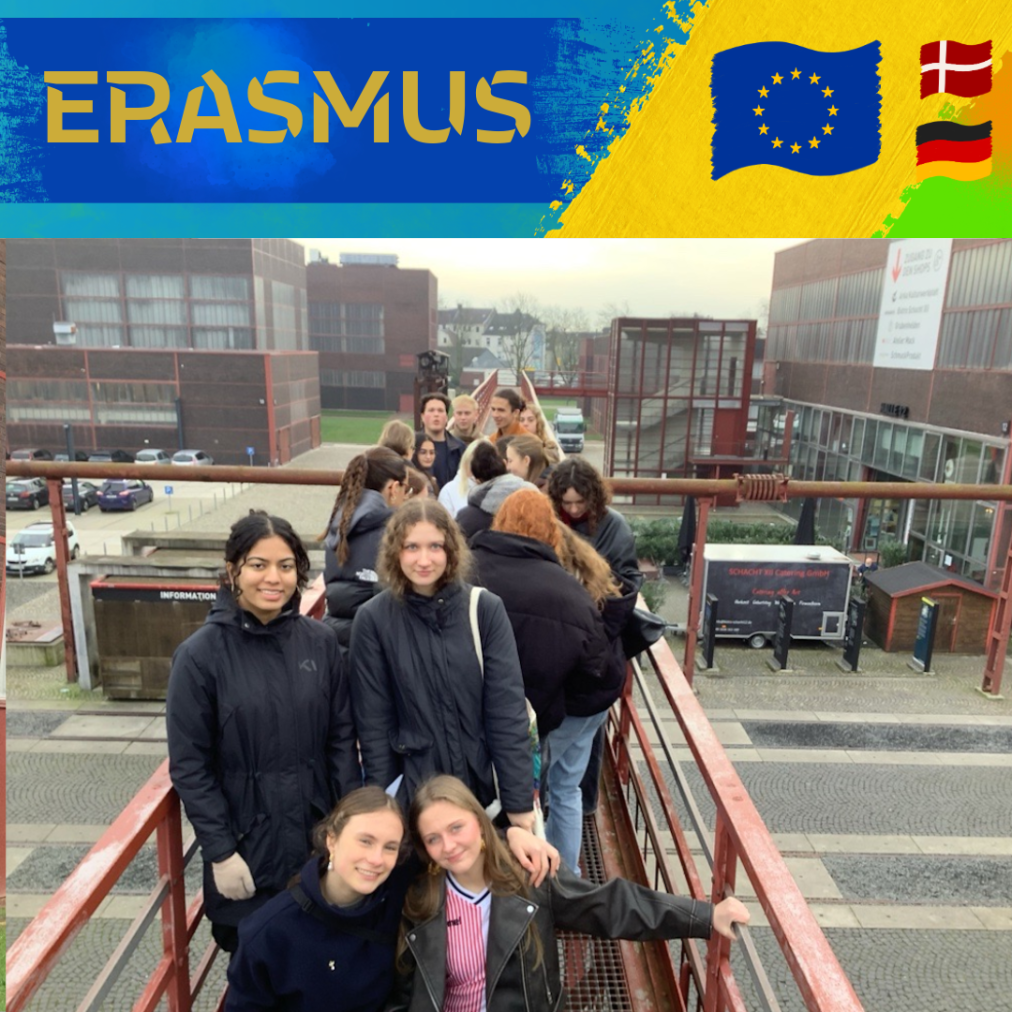
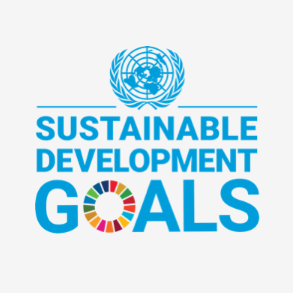
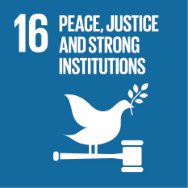







 Wir sagen
Wir sagen 









 Vom 24. bis 28. Oktober 2023 fand an der
Vom 24. bis 28. Oktober 2023 fand an der 










 Einige Schüler stellten anschließend der Gruppe ihr Gestaltungskonzept anhand ihres fertigen ‘Booklets’ vor.
Einige Schüler stellten anschließend der Gruppe ihr Gestaltungskonzept anhand ihres fertigen ‘Booklets’ vor.

